When our children tell us they hate us it cuts to the core.
I’ve had it myself with both my daughters, Zofia and Mia.
It happens often when we’re saying no to them about something that’s in their best interests.
It feels so wrong, so unjust.
You know what I mean, they’re asking you for something sweet, despite the fact they already had jam or nutella on toast in the morning, they’ve drunk OJ as well and now it’s 11.00 and they’re already pestering you to go to the shop and get something else.
“Come on Mum (or Dad)… it’s the weekend” they say, pleadingly.
Your ‘no’ is met with rage, anger, tears and that dreaded phrase:
“I hate you”
Or
“You’re a bad parent!”
I often get asked by parents how to persuade children not to say this kind of thing, because it hurts us so much to hear.
My answer can sometimes surprise some parents.
You can’t.
You can’t stop your child saying this (in fact, the more you try, the more likely they’ll use it) and in fact you may not even want to.
We say ‘I hate you’ to people we can afford to say it to. In developmental psychology it’s not a surprise that children experiment with their feelings on us.
It means they feel safe enough to do so.
They can reject us knowing, deep down, that we will still love them.
Similarly, we know that children and adolescents experience emotions very differently from us. Their brains are literally wired this way. In Neuroscience we have now learnt that children’s brains are far more active in the subcortical, autonomic areas of the brain, including the limbic system, which make them way more prone to extreme emotions.
In my book “When At the Zoo Watch the Humans” I write about how children experience higher highs and lower lows than we do.
I also write about how all emotions have their place within human existence, and all emotions serve us in some way.
So when your child is saying “I hate you” what can you choose to do?
First, recognise that it’s a natural stage of development and doesn’t mean anything bad about you or your child.
Secondly, recognise that ‘hate’ is temporary, not permanent, and will pass as quickly as it came.
Thirdly – and this is the coolest thing I’m going to tell you – instead of trying to correct the behaviour, respond with the most powerful expression you can ever tell your child:
“Well, I love you and I always love you”
Your child will almost certainly then reply, “well I hate you, and I’ll always hate you”
And all you need to do is repeat what you’ve already said.
Freed from the desire to “persuade” your child they’re wrong, you can give them the greatest gift they’ll ever receive from you.
Your unconditional love.
This idea has been one of the most exciting ideas I’ve learnt in my own journey as a parenting trainer. I’ve had lots of parents tell me it really frees them up from the rage they feel when they hear that expression.
If you want to learn parenting with me and the amazing team, it’s simple.
Come along to a Masterclass. You can check the schedule here: Future events
Check out my books for adults and kids on Amazon by searching Patrick Ney on your local Amazon
Follow us on social media Facebook / Instagram
With love,
Patrick
